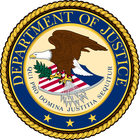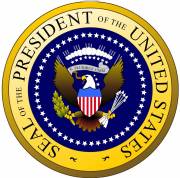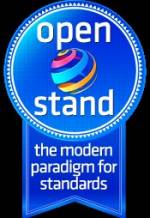 It’s well recognized by courts and regulators in many countries that standard setting among competitors can be procompetitive and good for consumers. As noted by the 5th Circuit Court in 1988, “it has long been recognized that the establishment and …
It’s well recognized by courts and regulators in many countries that standard setting among competitors can be procompetitive and good for consumers. As noted by the 5th Circuit Court in 1988, “it has long been recognized that the establishment and …

It would not be an exaggeration to say that the magic of open source software (OSS) is based as much on legal innovation as it is on collaboration. Indeed, the essential innovation that launched free and open source software was …
 Once upon a time we lived in a society that was not only completely analog but infinitely simpler. A time when it seemed the physical world could be understood and described, perhaps even tamed, purely through the application of rational thought. Contemporaries dubbed that era the Age of Enlightenment and looked forward to the wonders that this brave new world would bring. This week, one of the last icons of that heady time was dethroned and retired to a museum in Paris.
Once upon a time we lived in a society that was not only completely analog but infinitely simpler. A time when it seemed the physical world could be understood and described, perhaps even tamed, purely through the application of rational thought. Contemporaries dubbed that era the Age of Enlightenment and looked forward to the wonders that this brave new world would bring. This week, one of the last icons of that heady time was dethroned and retired to a museum in Paris.
I am speaking, of course, about the kilogram, the last of the seven International System of Units measures to be represented by a physical object rather than an “invariant constant of nature.” But where did it come from? And why, after two hundred twenty years, has it been replaced?
 Yesterday, the Deputy CTO of the US Office of Science and Technology Policy issued a press release highlighting the efforts (and success) of the Obama Administration in getting data compiled at public expense into the hands of the private sector for commercial repurposing. The release refers to a McKinsey & Company report that estimates that making such data publicly available “can generate more than $3 trillion a year in additional value in seven key domains of the global economy, including education, transportation, and electricity.”
Yesterday, the Deputy CTO of the US Office of Science and Technology Policy issued a press release highlighting the efforts (and success) of the Obama Administration in getting data compiled at public expense into the hands of the private sector for commercial repurposing. The release refers to a McKinsey & Company report that estimates that making such data publicly available “can generate more than $3 trillion a year in additional value in seven key domains of the global economy, including education, transportation, and electricity.”
If I have seen farther it is by standing on the shoulders of giants
Sir Isaac Newton, 1676
 If the phrase “open innovation” has a familiar ring, that’s not surprising. It’s not only a popular buzz phrase, but it has the type of virtuous ring to it that instinctively inspires a favorable reaction. But like most simple phrases, it intrigues rather than enlightens. For example, is open innovation feasible in all areas of creative, commercial and scientific endeavor? If so, do the rules, challenges and rewards differ from discipline to discipline, and if it’s not universally feasible, why not?
If the phrase “open innovation” has a familiar ring, that’s not surprising. It’s not only a popular buzz phrase, but it has the type of virtuous ring to it that instinctively inspires a favorable reaction. But like most simple phrases, it intrigues rather than enlightens. For example, is open innovation feasible in all areas of creative, commercial and scientific endeavor? If so, do the rules, challenges and rewards differ from discipline to discipline, and if it’s not universally feasible, why not?
A new free eBook of essays titled Thoughts on Open Innovation explores these issues, and more.
Have you discovered The Alexandria Project?
 The big news in the standards arena yesterday was a joint announcement by five of the standards setting organizations (SSOs) that have been most essential to the creation of the Internet and the Web: IEEE, World Wide Web Consortium (W3C), Internet Architecture Board (IAB), Internet Engineering Task Force (IETF), and Internet Society (the last three being closely affiliated entities).
The big news in the standards arena yesterday was a joint announcement by five of the standards setting organizations (SSOs) that have been most essential to the creation of the Internet and the Web: IEEE, World Wide Web Consortium (W3C), Internet Architecture Board (IAB), Internet Engineering Task Force (IETF), and Internet Society (the last three being closely affiliated entities).
Joint announcements by SSOs are rare, and the subject matter of this announcement was more so: each organization was joining in the endorsement of a set of five principles that they assert support a “new paradigm for standards” development.
 It’s very rare for me to write a blog entry directed solely at what someone else has written, but there’s an exception to every rule. This one is directed at a posting by Alex Brown, entitled UK Open Standards *Sigh*.
It’s very rare for me to write a blog entry directed solely at what someone else has written, but there’s an exception to every rule. This one is directed at a posting by Alex Brown, entitled UK Open Standards *Sigh*.
The short blog entry begins with Alex bemoaning the hard, cruel life of the selfless engineers that create technical standards:
It can be tough, putting effort into standardization activities – particularly if you're not paid to do it by your employer. The tedious meetings, the jet lag, the bureaucratic friction and the engineering compromises can all eat away at the soul.
Poor Alex. It does sound tough, doesn’t it?
The following is the introduction to the Feature Article in the most recent issue of Standards Today, the free "eJournal of News, Ideas and Analysis" that I have been writing for the last seven years. You can read the entire article here, and sign up for a free subscription here.
 For more than 100 years, the United States has been the exemplar of the "bottom up" model of standards development. Under this methodology, society relies on the private sector to identify standards-related needs and opportunities in most sectors, and then develops responsive specifications. Government, for its part, retains ultimate control over domains such as health, safety, and environmental protection, but preferentially uses private sector standards in procurement, and also references private sector standards into law when appropriate (e.g., as building codes).
For more than 100 years, the United States has been the exemplar of the "bottom up" model of standards development. Under this methodology, society relies on the private sector to identify standards-related needs and opportunities in most sectors, and then develops responsive specifications. Government, for its part, retains ultimate control over domains such as health, safety, and environmental protection, but preferentially uses private sector standards in procurement, and also references private sector standards into law when appropriate (e.g., as building codes).
Until recently, government agencies in the United States commonly developed their own standards for procurement purposes. This era of separate but equal standards creation officially came to an end with the passage of the National Technology Transfer and Advancement Act of 1995. With this legislation, Congress directed government agencies to use "voluntary consensus standards" (VCSs) and other private sector specifications wherever practical rather than "government unique standards," and to participate in the development of these standards as well. In 1998, Office of Management and Budget Circular A-119 was amended to provide additional guidance to the Federal agencies on complying with the NTTAA.
 The pace of technology is wondrous indeed. No corner of our lives seems safe from digital invasion, from picture frames to pasta makers. For years now, we have been threatened with Internet-enabled refrigerators, and perhaps 2011 will see it so.
The pace of technology is wondrous indeed. No corner of our lives seems safe from digital invasion, from picture frames to pasta makers. For years now, we have been threatened with Internet-enabled refrigerators, and perhaps 2011 will see it so.
Nor is the process likely to stop there. Soon, we are told, our homes will become infested by "mesh networks" of sensors, each one whispering information surreptitiously to its neighbor, in order to render our lives more energy efficient. But in so doing, they will observe our every move and report it to heavens knows whom.
 It’s well recognized by courts and regulators in many countries that standard setting among competitors can be procompetitive and good for consumers. As noted by the 5th Circuit Court in 1988, “it has long been recognized that the establishment and …
It’s well recognized by courts and regulators in many countries that standard setting among competitors can be procompetitive and good for consumers. As noted by the 5th Circuit Court in 1988, “it has long been recognized that the establishment and …
 Once upon a time we lived in a society that was not only completely analog but infinitely simpler. A time when it seemed the physical world could be understood and described, perhaps even tamed, purely through the application of rational thought. Contemporaries dubbed that era the Age of Enlightenment and looked forward to the wonders that this brave new world would bring. This week, one of the last icons of that heady time was dethroned and retired to a museum in Paris.
Once upon a time we lived in a society that was not only completely analog but infinitely simpler. A time when it seemed the physical world could be understood and described, perhaps even tamed, purely through the application of rational thought. Contemporaries dubbed that era the Age of Enlightenment and looked forward to the wonders that this brave new world would bring. This week, one of the last icons of that heady time was dethroned and retired to a museum in Paris.  Yesterday, the Deputy CTO of the US Office of Science and Technology Policy issued a
Yesterday, the Deputy CTO of the US Office of Science and Technology Policy issued a  If the phrase “open innovation” has a familiar ring, that’s not surprising. It’s not only a popular buzz phrase, but it has the type of virtuous ring to it that instinctively inspires a favorable reaction. But like most simple phrases, it intrigues rather than enlightens. For example, is open innovation feasible in all areas of creative, commercial and scientific endeavor? If so, do the rules, challenges and rewards differ from discipline to discipline, and if it’s not universally feasible, why not?
If the phrase “open innovation” has a familiar ring, that’s not surprising. It’s not only a popular buzz phrase, but it has the type of virtuous ring to it that instinctively inspires a favorable reaction. But like most simple phrases, it intrigues rather than enlightens. For example, is open innovation feasible in all areas of creative, commercial and scientific endeavor? If so, do the rules, challenges and rewards differ from discipline to discipline, and if it’s not universally feasible, why not? The big news in the standards arena yesterday was a
The big news in the standards arena yesterday was a 
 For more than 100 years, the United States has been the exemplar of the "bottom up" model of standards development. Under this methodology, society relies on the private sector to identify standards-related needs and opportunities in most sectors, and then develops responsive specifications. Government, for its part, retains ultimate control over domains such as health, safety, and environmental protection, but preferentially uses private sector standards in procurement, and also references private sector standards into law when appropriate (e.g., as building codes).
For more than 100 years, the United States has been the exemplar of the "bottom up" model of standards development. Under this methodology, society relies on the private sector to identify standards-related needs and opportunities in most sectors, and then develops responsive specifications. Government, for its part, retains ultimate control over domains such as health, safety, and environmental protection, but preferentially uses private sector standards in procurement, and also references private sector standards into law when appropriate (e.g., as building codes). The pace of technology is wondrous indeed. No corner of our lives seems safe from digital invasion, from picture frames to pasta makers. For years now, we have been threatened with Internet-enabled refrigerators, and perhaps 2011 will see it so.
The pace of technology is wondrous indeed. No corner of our lives seems safe from digital invasion, from picture frames to pasta makers. For years now, we have been threatened with Internet-enabled refrigerators, and perhaps 2011 will see it so. On December 8, the U.S. National Institute of Science and Technology (NIST) issued a public
On December 8, the U.S. National Institute of Science and Technology (NIST) issued a public